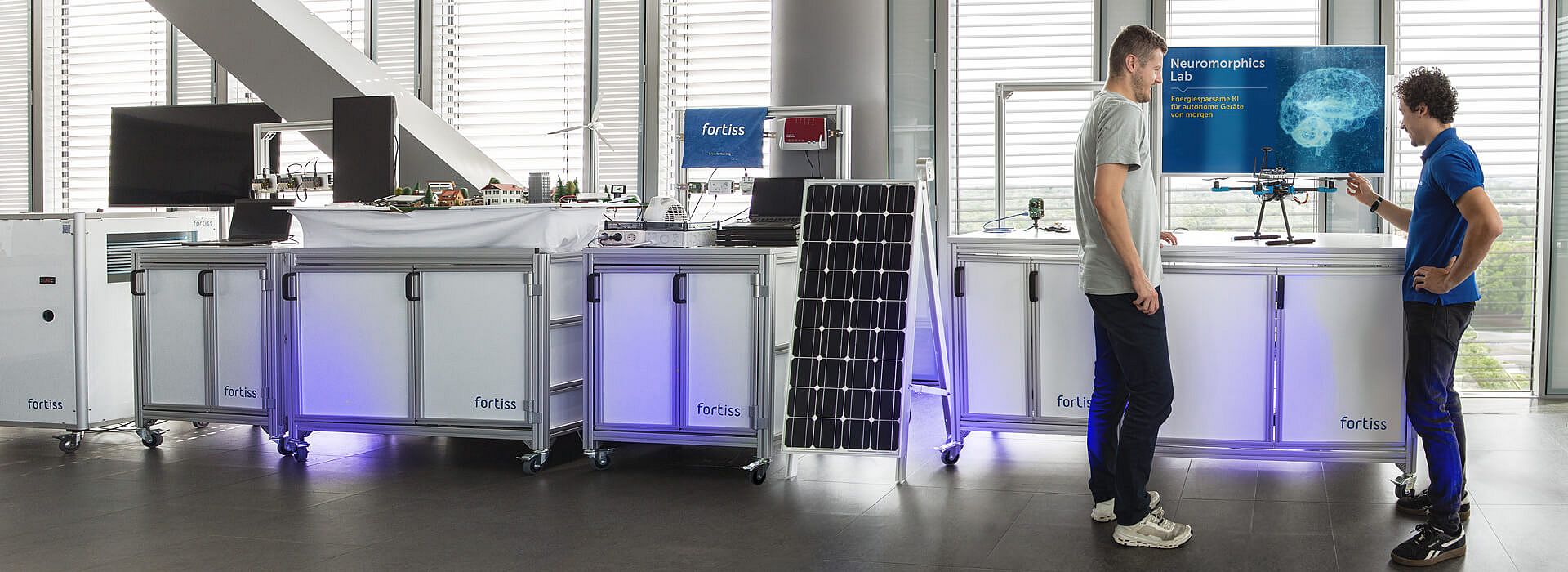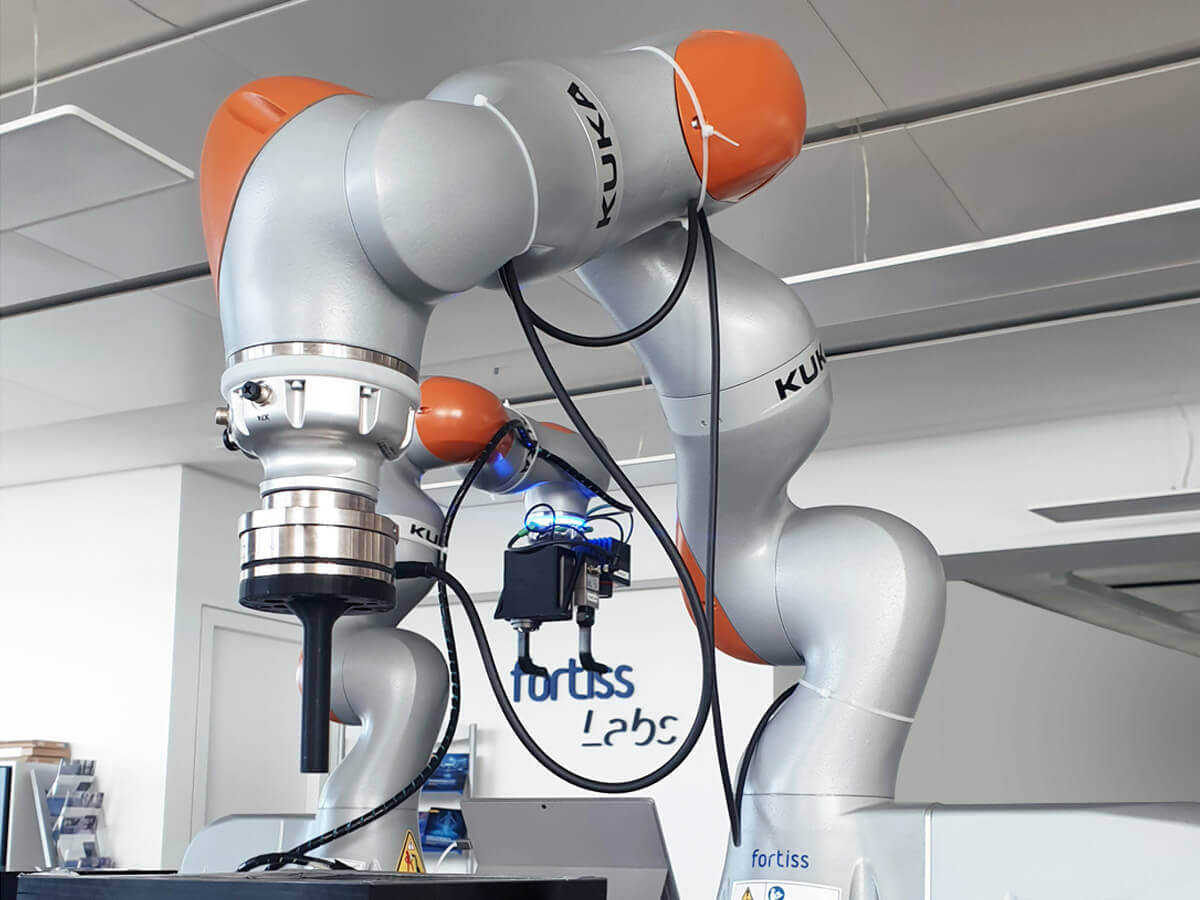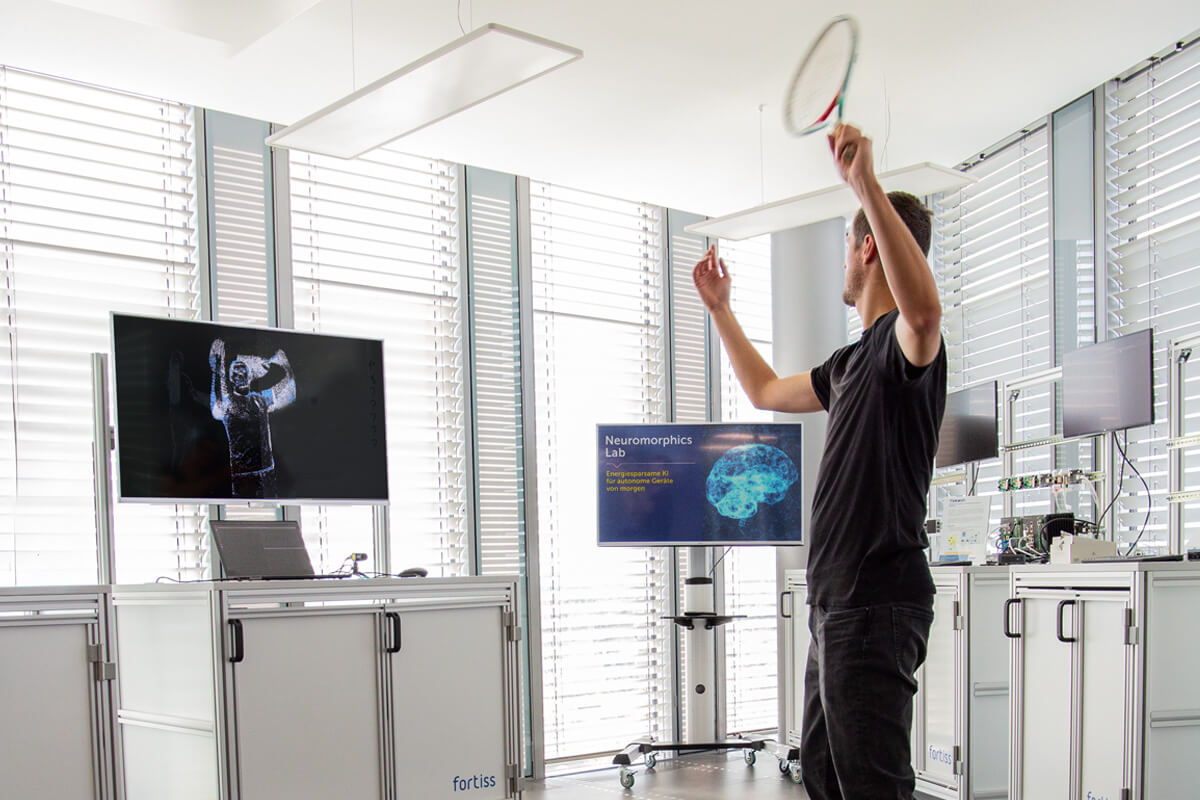
Energy-efficient AI for tomorrow’s autonomous devices

With the Neuromorphics Lab, fortiss offers with a flexible experimental platform for testing AI applications with neuromorphic support. The presentation includes a unique robotic arm controlled by a neuromorphic algorithm and a state-of-the-art low-power gesture recognition sensor that relies on event-based image processing. Flexible control and autonomous movement of robots and visual sensing are challenging in AI due to their complexity and the limited battery capacity of mobile devices. Robot motion is calculated using a neuromorphic “Loihi” chip based on spiking neural networks (SNN), such as those found in the human brain. These neural networks serve as an inspiration and use event-based sensors to sense the environment like eyes.
Neuromorphic computing enables a significant reduction in the cost and weight of rechargeable batteries and extends their service life, one day allowing a wide range of robot and everyday systems to benefit and be brought to life. This development will result in a multitude of industrial applications in areas such as the Internet of Things (IoT), mobile robots, autonomous vehicles, aerospace and medical devices. Concrete examples include voice recognition in vehicles, movement detection in drones, gesture control in household appliances, augmented reality in smartphones, liquids analysis in medical instruments and debris detection in mini-satellites.
Neuromorphic computing embeds AI technology within mobile and edge devices. The Neuromorphics Lab thus offers a flexible experimental platform for testing AI applications with neuromorphic support.

As part of the Neuromorphic Lab, various demonstrators are presented to showcase the practical applications of neuromorphic systems in real-world scenarios.
The following examples highlight different fields of application in robotics, gesture recognition, and object detection:
These tutorials are aimed at engineers and R&D managers in large and small industrial companies. They present a revolutionary technology for on-board artificial intelligence (edge-AI) in terms of energy efficiency and latency: neuromorphic computing. Gains of several orders of magnitude are possible!
Moreover, certain neuromorphic chips enable on-chip learning, and therefore on-line learning and system adaptability. For example, a system that has been pre-trained for some people can be adapted for others in just a few seconds online. In this way, systems can self-improve. We are convinced that neuromorphic computing offers solutions for many embedded AI applications in automotive, aerospace and medical technology, robotics, logistics, consumer electronics and, of course, smartphones.
